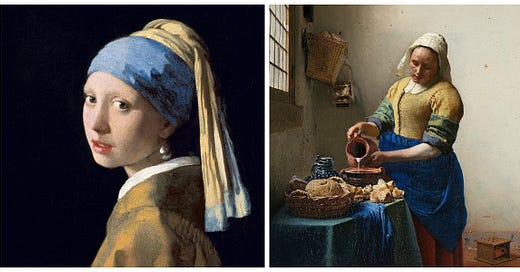I love the mundane and consider it an important element of storytelling. Big things start from small things— the culmination of little ideas, the ingredients in a pot of Jollof, the seeds that make up the garden. That’s how I see mundanity, not as dullness but as the seemingly insignificant parts of everyday life. It’s in the ordinary processes we carry out: washing plates before cooking Jollof, opening the curtain before writing this letter, scrolling through Google to learn how to start a garden, etc. We often dismiss them because they’re irrelevant in the grand scheme of things.
I heard about Slow TV for the first time today. It’s the term used to describe the presence of ‘everything’ — the boring and the interesting parts, an ordinary event in its complete length. No curation. No cuts. An entire novel where it’s just someone sleeping. A movie where the protagonist cycles from Lagos to the Benin Republic. There’s no real plot or real conflict. The characters are boring. What does that look and sound like? What am I supposed to take out from that experience?
I was listening to this podcast (Invisibilia) when I came across this TV genre. It sounded like a tired attempt to subvert storytelling rules. While the episode played, I searched ‘Slow TV’ on Youtube and found a video that made the episode vivid. My first instinct was to fast-forward the video to the main part. What main part? The unwritten rule of Show TV is simple: I have to watch the entire show to find the ‘interesting parts.
Slow TV is a slice of life. It does more than attempt to subvert storytelling rules. It mirrors real life — you can’t fast forward or rewind to get to the good parts. Although you can dip holes in this argument, it’s true. You have to experience every part of your life. You can’t cut out the uninteresting or horrible scenes.
The video has 1,298,415 views and a ton of positive comments from viewers about their viewing experience.
I don’t know how I’ll feel when I eventually watch it to the end. Listening to the podcast gave me some sense of why people are interested. If you watch it long enough, you’ll find yourself forming a story about what you see, unlike with other kinds of stories where you’ve been given the entire narrative and less agency to make assumptions.
I like the idea of writing stories in a way that gives readers room to wonder, assume and tie narratives up themselves. I recently tried it out with a short story I wrote, and I got a lot of ‘what’s the lesson here?’ There’s none. I wrote a simple/complex story about very mundane activities and boring characters. Life is a lot of nothings and small moments that don’t add up to anything.
What if you had never left Mexico?
I listened to this podcast about a 42-year-old undocumented Mexican man living in America. For the podcast, he’d initially documented his life as a 17-year-old in 1996. Then in his 30s and now in his 40s.
As a 17-year-old, only a few years after he moved to the US, he lived with his family (several siblings in a cramped trailer) with very little to feed on but so much to dream about, even though his father discouraged dreaming. His excitement about getting his high school diploma is infectious, but his anger and fear about his current living conditions is overwhelming. As a man in his 30s, then 40s, he’s well-off. He has children, a home and a business. He seems content, even though he’s still an illegal citizen.
At some point in the show, his daughter asks him, ‘What if you never left Mexico’ and he says he doesn’t believe in ‘what ifs’. That he would have come, one way or the other. It’s a bit of a story about the American dream. Still, as someone who loves to draw parallels, I couldn’t help but think about my recent essay in the Republic that documents movement — mine, Buchi Emecheta’s and all the other young people leaving home for new beginnings.
As always, thank you for reading. Until next week.





This read like my thoughts were being broadcast on the screen 🤯.
This is why I love autobiographies about random people; they're a window into the seeming ordinariness of everyday humans, the Slow TV of a life.
It also reminds me of a concept I thought up - "Sea changes": a chain of unknown events that leads to the known start of an occurrence e.g. a reed which taps a coral that breaks off and pushes a cog in an ancient underwater submarine, causing it to start up again and ultimately leading to the discovery of Atlantis or something.
Thank you always for answering the call to writing, Opsy and for bringing your spiciness to the bread of the everyday (🤭).
I just realized that from the point of view or an observer, me reading this blog post on my bed, in the dark, at quarter past 2am, somewhere in Lagos can be seen as mundane. Great writing as always Ope.